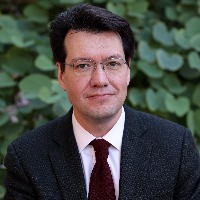A PhD position, fully funded by the National Science Foundation (NSF) is available in the Cybernetic Systems and Controls Lab (CSCL) in the Department of Mechanical and Aerospace Engineering at Arizona State University in Tempe, AZ.
Topic: Our laboratory specializes in the use of optimization-based methods to model, analyze and control networks of nonlinear and PDE systems. We are looking for students with interest and talent in mathematics and computation to contribute to making fundamental advances in these fields.
Funding includes tuition, a 12-month stipend of $2600/mo, travel, health case and expenses. A Fall 2024 start is anticipated, although applications will accepted until the position is filled.
Our lab has a broad mandate to perform advanced, computation-based research in dynamics, control theory, optimization, and machine learning. Significant accomplishments of our lab are the development of the SOSTOOLS and PIETOOLS software suites for optimization of polynomials and optimal control of PDEs. Applications include control of nuclear fusion, communication networks and immunology.
